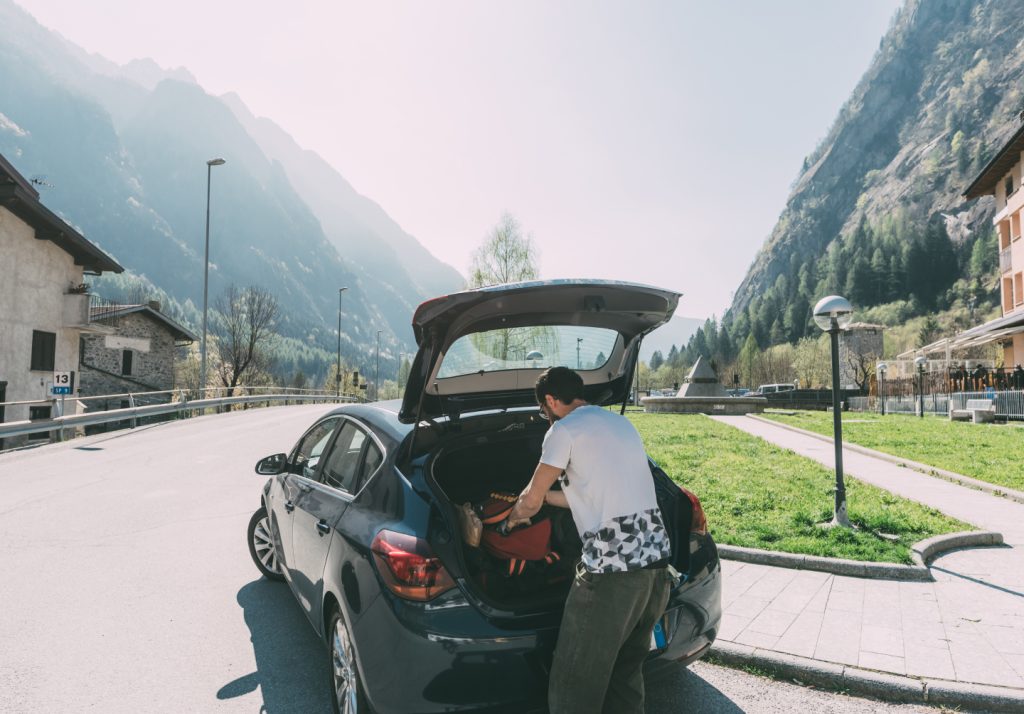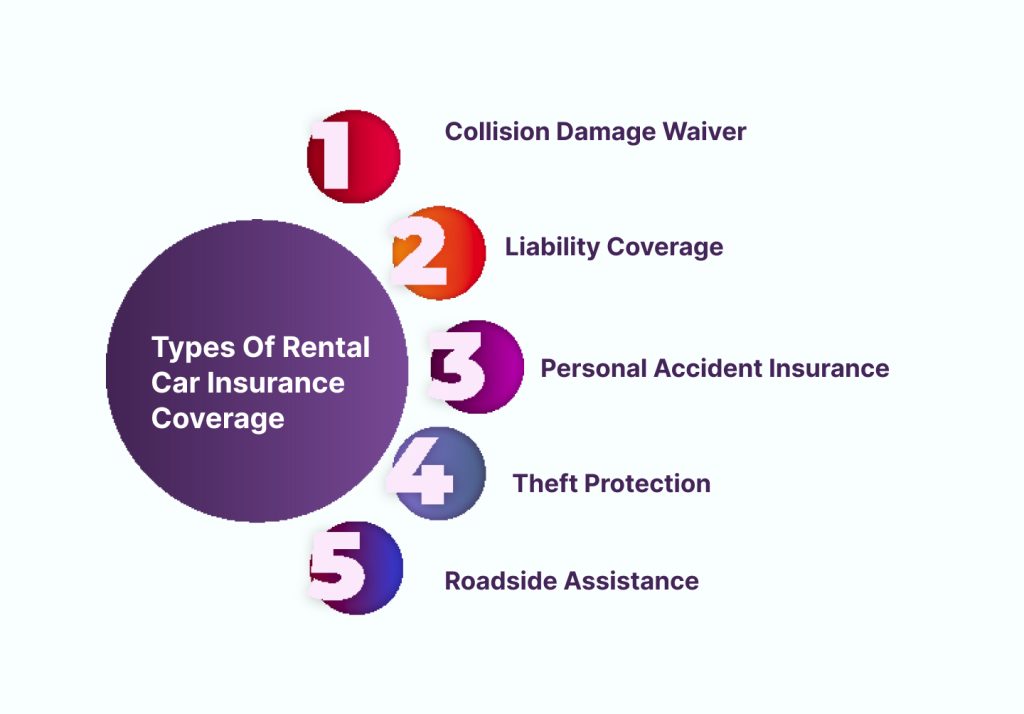
What is rental car insurance?

Renting a car can be one of the most convenient ways to explore a new destination or get around on a business trip. But one of the most confusing parts of the car rental process is figuring out whether or not you need rental car insurance. Do you need it? What will it cover? Is it already included in your existing auto policy or credit card? In this comprehensive guide, we will break down everything you need to know about rental car insurance and how to make an informed decision. Let’s start by exploring the different types of coverage and answering some frequently asked questions.
Rental car insurance is a type of coverage offered by car rental agencies that helps protect you in the event of an accident, damage, or theft while using the rental vehicle. It’s an additional layer of security, designed to prevent you from being financially responsible for repairs, damage, or injuries if something goes wrong during your rental period.
While the rental agency will offer coverage options, it’s important to understand what each one entails, as well as what may already be covered by your existing car insurance or credit card.
Rental car insurance typically includes:
- Collision Damage Waiver (CDW): Covers damage to the rental car, reducing the rental agency’s right to charge you for repairs.
- Liability Insurance: Protects you if you’re found liable for damage to someone else’s property or if you injure someone.
- Personal Accident Insurance (PAI): Covers medical expenses for injuries to you or your passengers.
- Theft Protection: Helps cover the cost of replacing a rental car if it’s stolen.
- Roadside Assistance: Provides help with issues like flat tires, lockouts, or running out of gas.
Each of these coverages varies depending on the rental company, location, and even the type of vehicle you’re renting.
Types of rental car insurance coverage

Rental car companies typically offer different types of coverage, so it’s important to be clear about what each one covers. Let’s take a deeper look at the types of rental car insurance available.
1. Collision Damage Waiver (CDW) / Loss Damage Waiver (LDW)
The Collision Damage Waiver (CDW) or Loss Damage Waiver (LDW) is often confused with standard car insurance, but it’s technically not insurance at all. Instead, it’s a waiver that absolves you of financial responsibility for any damage to the rental vehicle. If you choose this option, you will not be required to pay for repairs to the vehicle, except for specific exclusions (like vandalism or driving under the influence). It’s important to note that CDW/LDW may not cover all types of damage, such as damage to tires, windows, or the underside of the vehicle, so read the fine print.
If your personal insurance policy or credit card covers rental car damage, you may not need to purchase this option, but it’s always good to check before assuming you’re fully covered.
2. Liability Coverage
Liability insurance is crucial because it covers the costs if you cause injury or property damage to others. Most countries and rental car companies require you to have some form of liability insurance. It typically covers:
- Bodily Injury: If someone is injured in an accident you caused.
- Property Damage: If you damage someone else’s property, like a fence or building.
While this is often included in the price of your rental, some rental agencies will allow you to purchase additional coverage for higher limits, especially in cases of injury or property damage in expensive cities or countries where the risk of lawsuits is higher.
3. Personal Accident Insurance (PAI)
Personal Accident Insurance covers medical expenses for you and your passengers in the event of an accident. This type of coverage is especially useful if you don’t have adequate health insurance or if your personal policy doesn’t cover accidents abroad. PAI generally includes:
- Medical expenses
- Ambulance costs
- Accidental death benefits
While this can be helpful, if you already have travel insurance or personal health coverage, it might be redundant to purchase this insurance through the rental company.
4. Theft Protection
Theft protection covers the cost of replacing the rental car if it’s stolen during your rental period. However, this protection often has exclusions, such as negligence on your part. For example, leaving the keys in the car or not securing it properly might void the coverage. Theft protection may also not cover personal items stolen from the car, so it’s essential to have a plan for your valuables.
5. Roadside Assistance Protection
Roadside assistance can be a lifesaver if you’re stuck in an unfamiliar area or don’t have the tools to handle a problem. This type of coverage can cover:
- Towing charges if the car breaks down
- Flat tire repairs
- Battery jump-starts
- Lockout assistance
- Fuel delivery
While most roadside assistance packages aren’t prohibitively expensive, it may be worth checking if your credit card or existing insurance already provides these services, especially for short-term rentals.
Do you need rental car insurance?

Deciding whether to purchase rental car insurance depends on several factors, such as your current coverage, the rental car location, and your comfort level with risk. Let’s go through a few scenarios to help you make the best decision.
1. Check Your Existing Auto Insurance
The first place to start is by checking your own car insurance policy. Many standard car insurance policies extend coverage to rental cars, meaning you may not need to purchase additional insurance. However, the coverage provided may vary depending on your policy and the type of rental car. Be sure to contact your insurer to confirm whether or not you’re covered for rentals.
2. Does Your Credit Card Provide Coverage?
Many credit cards, particularly those with travel perks, offer rental car insurance as a benefit. This typically covers damage to the car, but it may not include liability coverage or personal injury protection. Furthermore, credit card coverage is usually secondary, which means it will only kick in after your personal auto insurance has been exhausted. If you plan to rely on this benefit, be sure to call your credit card company and check the exact details before you book your rental.
3. Renting Abroad?
If you’re renting a car overseas, especially in countries with higher risks of accidents or theft, it may be worth purchasing the insurance from the rental company. In some countries, personal insurance coverage doesn’t extend to rental vehicles or may not provide adequate protection for certain types of damage. Plus, driving laws and road conditions can vary dramatically from what you’re used to.
4. Consider the Rental Duration and Value of the Car
For short-term rentals or cars with lower value, it may make sense to skip the extra coverage. But for longer rentals or more expensive vehicles (luxury cars, sports cars, etc.), you might want to purchase the additional insurance for peace of mind, knowing you’ll be protected if something goes wrong.
Does rental car insurance cover other drivers?

Most rental car insurance policies only cover the primary driver listed in the rental agreement. However, you can usually add extra drivers to the policy for an additional fee. If someone else drives the rental car and they are not listed as an authorized driver, any accident or damage that occurs might not be covered under your insurance policy.
It’s important to list all potential drivers on the agreement and to check with the rental company about the specific terms related to secondary drivers.
What happens if you’re involved in an accident?

If you’re involved in an accident while driving a rental car, here are the steps you should take:
- Ensure Safety: Make sure you and any passengers are safe. If anyone is injured, call emergency services immediately.
- Contact the Rental Company: Notify the rental agency about the accident, especially if the car is damaged or needs to be replaced.
- Document the Incident: Take photos of the accident scene, the damages, and any other relevant details. Gather contact information from other parties involved.
- File an Insurance Claim: If you have insurance, file a claim as soon as possible. Be prepared to provide all the documentation you’ve gathered.
- Follow Up with Insurance: Keep in touch with your insurance provider to ensure the claim is processed smoothly.
Final thoughts
In the end, deciding whether to purchase rental car insurance comes down to your personal circumstances. If you’re traveling abroad, driving in risky conditions, or renting a high-value vehicle, the extra coverage might be worth the investment. On the other hand, if your existing car insurance or credit card already covers you adequately, you may be able to decline the rental company’s offers.
Either way, make sure you understand what’s covered and what’s not before you hit the road. And when booking your next trip, don’t forget to check out Docalla for seamless travel arrangements, including rental cars, hotel bookings, and flight packages to make your journey even easier.